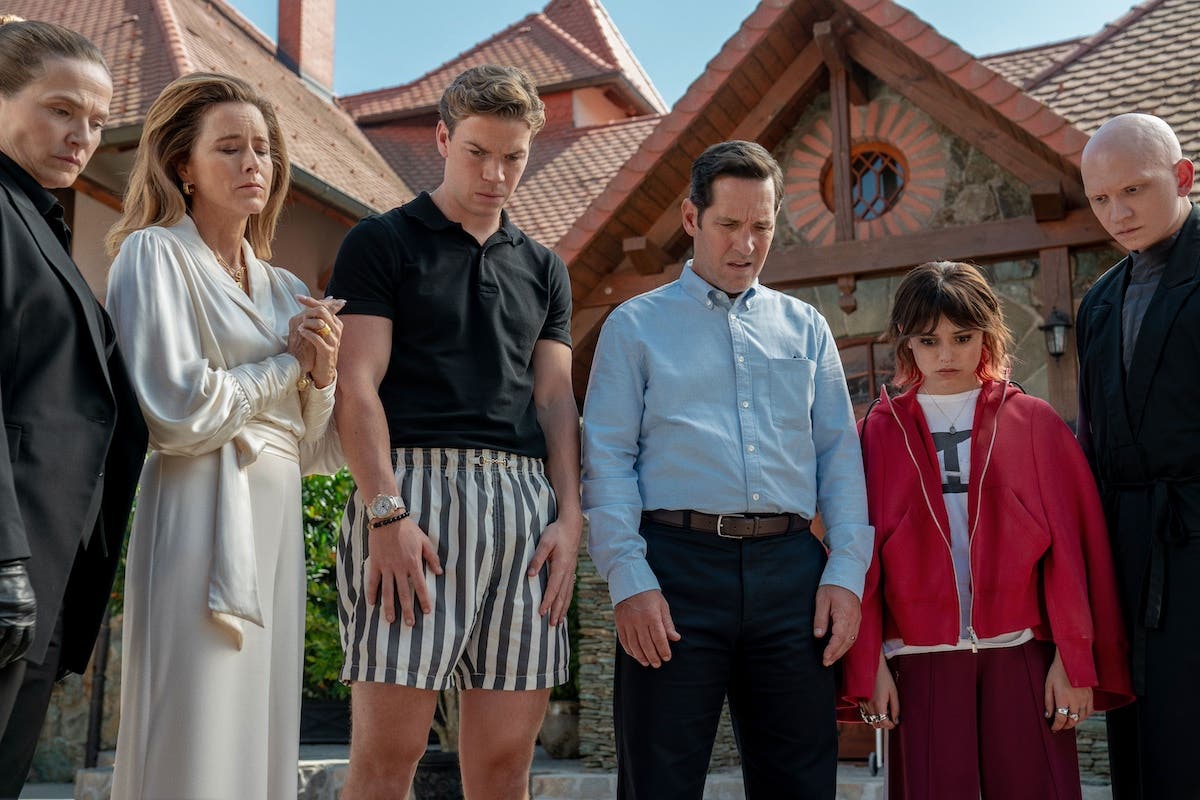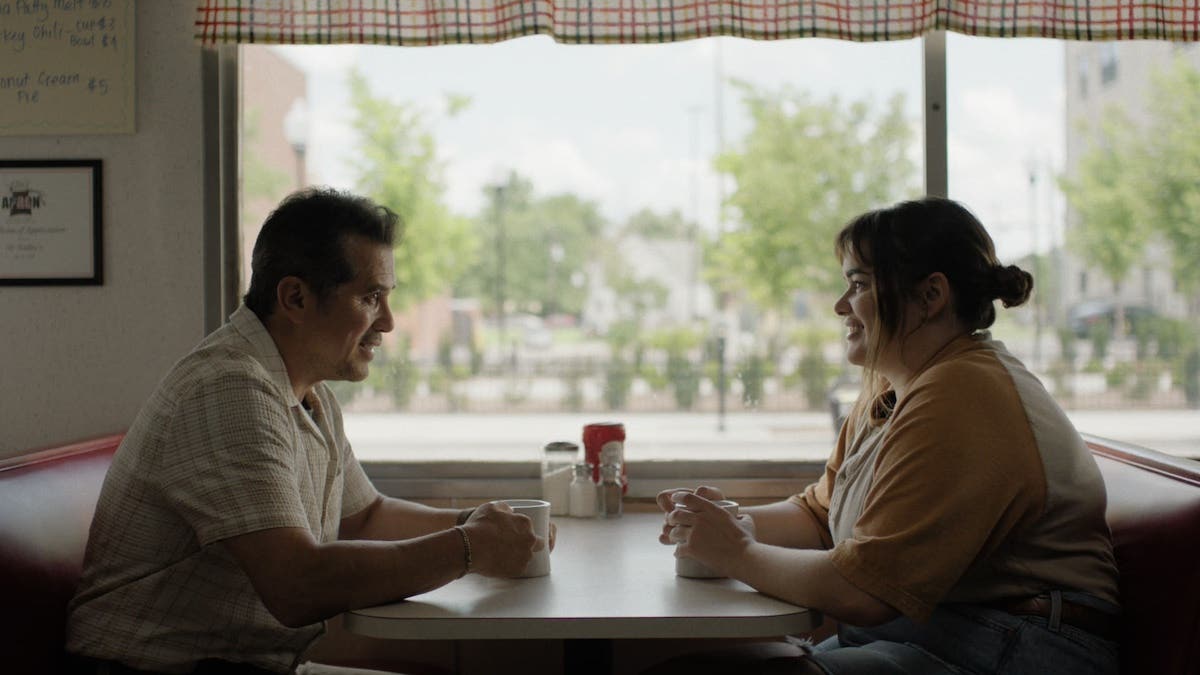WRITERS ON BREAKING IN: 6 Tips from Max Landis
Not many writers can boast selling three spec scripts in six months — unless you’re Max Landis. After his string of 2011 spec sales, Landis talked with ‘Script’ about his journey of breaking in.
By Zack Gutin
Originally published in Script magazine May/June 2011
Max Landis' secret is no secret: Be true to your vision, enjoy writing, and find a story that has universal appeal. And you can find success, too ... even if your last name isn’t Landis.
I’m sitting in a tree right now, a carved-out tree in the forest-like section of an eclectic cafe in Hollywood. I’m with Max Landis, the screenwriter who metaphorically laughed in the face of Hollywood’s spec sale drought by selling not one, not two, but three specs inside a six-month span.
In my interviews for Script, usually I’m talking to a writer who has recently sold one spec and we chat in an office or over the phone. The genius of Max Landis, though, is that nothing is usual. “There really are [few] celebrity writers anymore, but I want people to know about screenwriters. When you’re in a vast desert filled with zero [inspiration] and are starving from lack of ideas, it’s the screenwriter— not the director, not the producer— who sees that glint in the distance, who sees that oasis and leads them to it. [Producers and directors] may help uncover it and shape it and build shelter for it, but it’s the screenwriter who found the water.” Screenwriting enthusiasts, meet Max Landis.
The Scene
Looking around the cafe filled with writers, all of whose laptops have Final Draftopen on them, Landis, who has spent many hours writing here, reflects: “Only in L.A. ... you see all these people writing and you start to think, ‘If there are this many people doing it, maybe I’ve lost my way.’ It’s like being an ant on an anthill.” But Landis never let that doubt become more than a passing thought because screenwriting is what he does. “You hear it all the time [in L.A.], you get introduced to someone and they say, ‘I’m a writer.’ It’s like they said I’m an actor. The vibe is always like, ‘Yeah, you and everyone else.’ But you can’t let that hold you back.”
Though life as an aspiring writer can be intimidating at times, according to Landis, Los Angeles is where you need to be. “People who find writing work outside of L.A. are outliers. The business is in the room. It’s about you as a person.” He clarifies, “Talent is not secondary, but it is equal to your personality. You have to be in [the scene], taking general meetings, going to parties and running into people, making friends. In a way, L.A. is like a big office and the other people you run into, at all levels, are your co-workers.”
Los Angeles also lends itself to a cultural environment that enhances most artists’ abilities and experiences. As Landis describes, “I have a go-out-and-do-it addiction in a bad way. I always want to be out playing. I like to go out and take pictures for Facebook; I’m an explorer, a self-broadcaster, and an adventurer. I get bored easily, so I’m always trying to create stuff for me and my friends to do.” Anyone who lives in Los Angeles or has spent time here can tell you, the options are many. “There’s so much to do in L.A. I’m not a big club guy, but I’m even starting to like the bars. (Now, I have my own money; before, I didn’t.) I like playing around with my friends. I’m the number-one fan of all my friends.”
Max also has another past time he enjoys. “There’s a theater in L.A. called CineFamily that I pretty much live at. It is probably the best place in L.A. They don’t just show old movies. They let you experience theaters in L.A. in a whole new way.”
The Story
The most important part of what Max Landis does is loving what he does. As we all know, most people in our lives can’t understand why one would lock himself in front of a computer for hours on end (unless it’s Facebook; that, they understand). As Landis explains, “I’ve been asked how I do it, how I get so much done. It’s because I don’t get distracted from writing, I get distracted BY writing. Beats World of Warcraft.”
That sort of discipline is often missing from the lives of aspiring writers who struggle to keep an effective writing schedule. The trick for Landis? “Don’t make it your job, make it your hobby,” he continues. “If you don’t enjoy writing, you shouldn’t be doing it. If you do enjoy it, do it more. Don’t treat it like it’s a job. Rewriting someone else’s work, that’s a job! Your original stuff should be fun.”
Landis has a point: This is your work, your creation. If you’re writing something that you want to show the world, don’t let the world get in the way of your finishing it. “Let writing be your hobby,” he reiterates. “Enjoy it, talk about it. If you don’t enjoy it, stop! I hate when I hear screenwriters complaining about finishing their specs. Fuck complaining, it’s your story. You gotta finish scripts. Nepotism can only get you so far, right?”
Yes, the Max Landis story started about 25 years ago when legendary director John Landis and his wife gave birth to young Max (the father-to-son facial similarities are unmistakable). But, it’s important that we stop here for a moment. At this point, some of you might make the assumption that Landis had it easy, but that simply isn’t true. Perhaps the start of his progress was made easier by his lineage but, as anyone in Hollywood will attest, studios don’t buy scripts as favors. It would be cheaper for them to just buy you a car or a house.
“My dad’s most successful films were made 20 years before my career started. It’s a foot in the door, definitely, but it’s not an open invitation. It’s still a journey,” says Landis as he thinks about his first job co-writing a script with his father to the time seven years later when he sold a script of his own. “He believed in me as a writer. My dad’s not the kind of guy to [recommend me] if he didn’t think I was good. Now he feels vindicated and that’s helped our relationship greatly,” he laughs. “He’s very proud of me at the moment, which is a nice feeling, considering I got kicked out of high school.”
Don’t worry, we’ll discuss that later, but the point to understand is that Max has made his own way. “The best thing my dad did for me was give me a real sense of how to tell a story—on the page and just talking—explaining a movie in a way that makes it exciting and easy to listen to.”
In fact, if you stand in Max’s shoes for a beat, you might see that there is nothing easy about his progress at all. Remember, in one sense, he is John Landis’ son, which may seem advantageous. But in another sense, he is John Landis’ son, and he’s coming in for a meeting ... Isn’t that cute? Landis recalls, “In the beginning of my career, I’d go into generals and spend the majority of the time hearing stories about my dad—major executives wanting to talk about the good old days. I never got a chance to make my own impression. It lit a fire in me, I wanted to shut those people up. I wanted to make a statement.”
The Spark
Landis’ journey got really interesting several months ago when Max was visiting a friend— the daughter of screenwriter Amy Heckerling. The younger Heckerling had another friend over, Josh Trank, with whom Max had attended high school and once had a romantic rivalry with over a girl. “I was terrible at homework; I got kicked out of high school. I went to a pretty stringent boarding school for ‘fascinating teens.’ That’s when Josh knew me, at Beverly High before I got kicked out.” But on this day, they were reconnecting and finding that, while Landis had been working on a career as a screenwriter, Trank had been working on his career as a director. Each found the other’s work creative and interesting. Then Trank had an idea, which Landis loved, and they put their past behind them.
“It was like building Frankenstein. Josh had the brain and I gave it a body,” says Landis. “The moment I got the three characters nailed down, I knew it was going to be my first sale.” The script is called Chronicle, and it’s a Blair Witch-like, POV-style film about a group of friends who stumble upon something in the woods that causes them to gain special powers. But, he points out, “It’s not a superhero movie, it’s a super-power movie. Comparing Chronicle to any superhero movie that’s been made so far is the wrong road to take. It’s a different type of film.” Landis wrote the script and Trank will direct.
Landis, who maintains an admittedly manic and unusual writing process, once pumped out an entire script in a single day, but it was “a mess” and he’d done it to test himself. But it’s that intensity toward his craft that has allowed him to write over 59 screenplays from the ages of 16 to 25.
The Streak
The run Landis has been on is one thing that is NOT unusual; it’s downright phenomenal. Given the spec sale landscape since the strike of 2006, and even before, for a young writer to sell three specs in six months is truly attention-grabbing— reminiscent of Shane Black in the ’90s.
When you ask Landis, he’ll tell you that he attributes his success to two sources: his father, for giving him the drive to write the way he does, and his management at Circle of Confusion. “Having [good] management is like joining a fraternity,” he jokes. “They’re gonna hook you up; they’re gonna introduce you to people.” That support has been unwavering, as Landis’ managers at Circle of Confusion have read each of the many screenplays that he’s delivered, understood his vision, and have now helped him land in a very promising position. “I owe my whole career to them and my dad, and to never stopping, but I guess that part is me. Circle stuck with me for four years [and a lot of scripts] before I sold a spec.”
When you examine each of the sales, the most notable similarity is the distinct, genre-pushing storylines. “Genre-mashing is a crude term and it makes execs very uncomfortable,” says Landis. “But if you want to pin down what I do, that’s what I do. And I’m doing it because I think it’s what’s next and because it’s what I like to write.” The genre-bending description is true of Chronicle, but also of Landis’ second sale, Good Time Gang, which follows two action-hero spies who behave more like the guys from Jackass than The Bourne Identity.
His third sale, a story that is being kept under wraps, is described as “taking an old story and making it new again,” says Landis. “I’m doing something with an old story, but not a twist. I’m not interested in twisting it. There’s a reason this story is in the zeitgeist, a reason why it’s been around for almost 200 years. It’s not because it was redone with some young, sexy actor in it. So, what I’m doing is a zeitgeist version of this story. Remaining true to it, taking all the best parts of what people know about the story and combining them in the best possible way.”
Maximizing Your Writing
Landis has had some funny incidents along the way, which helped him learn that his creative process is the right one for him and that yours is the right one for you. “Never use someone else’s process word for word. It’s your process; it’s what’s in you! ‘Follow this guy’s process and use this colored paper’—never do that! Never take advice that sounds like instructions. If you want to do that, buy a coloring book. Be your own creative.” That said, here are Landis’ tips:
Tip 1. Finish your scripts! If a script is taking you more than six months, finish it. Have all of your ideas before you start on the first page. Know all the answers. You’re God. Don’t tell me you’re not sure how to crack the story—you made it up! It’s you talking to yourself with sock puppets! You are God, you can finish.
Tip 2. Can you sell? Maybe, but that’s not about you as a god, it’s about you as a person. A screenwriter is a false god in his own world and has to be a compelling prophet in the real world. You gotta be able to talk to people, you gotta be [where the business is], and you gotta be able to take criticism. If you can’t take criticism, put down this magazine right now.
Tip 3. If you hear someone not understanding your script, you have to say ‘okay’ and be willing to not explain it to them. You know what their not understanding it means? It means they’re not buying [your script]. It means you didn’t do a good enough job explaining it in the text. If you’re trying to explain it in the room, it’s too late. Go back and work on it.
Tip 4. In a pitch, though, what’s great is that it’s not too late! You can make something up on the spot. You’re not bullshitting, you’re creating. There is no such thing as lying in screenwriting. As an addendum to that, be able to tell your story in two really interesting sentences and then five less interesting sentences. Those first two sentences will earn you the five. And again, it’s not paint by numbers. Maybe you have one really interesting sentence to get you the other six.
Tip 5. Know the beginning, middle and end of the script. Know everything that happens. Don’t think, “Oh, I’ll figure that out later.” Figure out how things lead to each other. Think linearly even if your story isn’t linear. Even if your script is super-intense and you need a diagram to figure it out, like Inception, think linearly to help you figure that out. How do the dominoes fall? Movies are told in scenes and shots, and they are not just floating around the movie theater. They are happening in an order! Be able to describe [each scene] in order. If your idea is too ethereal to describe that way, it’s not an idea for a movie. Write it as a book.
Tip 6. DON’T PITCH DURING GENERAL MEETINGS! Treat a general meeting like a getting-to-know-you thing, and relax! You can talk a little bit about your ideas, but try to choose one to focus on, and don’t talk too much. Describe it like you would to a friend; you don’t tell them the whole thing. That’s what a pitch meeting is for.
Just the Start
Perhaps this is the beginning of a Max Landis brand of films. I asked him if there was a conscious effort in place, a strategy to brand himself in pursuing these types of stories with unique perspective on familiar tales. “One-hundred percent,” responds Landis. “Some writers would say no, I want to do it all. I’m not trying to sell them on art; I want to sell them on thinking it’s cool the way I think it’s cool.”
He certainly fits the shoes of a producer, but I also asked Landis if he thought he’d ever want to direct. “My pitching style is very visual. I’m told I aspire to direct. The old joke goes that once someone ruins one of your movies, then you’ll want to direct. I’ve written scripts that I’ve thought I might want to direct, but at the end of the day, I know what I’m good at—stories. I don’t think of myself as a great artist or craftsman, but I believe we’re at a point that there are a bunch of new stories to tell.”
Landis goes on, challenging the common philosophy that there are no “new” stories. “There are new configurations of old stories ready to be told. I like to re-contextualize them. If you put the pieces together in a new way, you have a new movie. What if there were a movie like Harry Potter where the wizardry world gets exposed? That’s its own movie. What if the aliens came and we won in the first act? What’s that movie? I like to ask ‘what if.’”
So do we. What if this “streak” is a sign of the birth of a moviemaking giant? That would be special, very rare, and—dare I say again of Landis?—unusual.
- More Writers on Breaking In
- HBO Exec Chris Salvaterra Offers Perspective on The Business Side of Screenwriting
- Script Notes: Where Story Begins - Genre
Writing Great Action Sequences Webinar by Glenn Benest
On-Demand Webinar
DOWNLOAD NOW!
At a Glance:
- During this webinar you will learn the best techniques for formatting and constructing action “set pieces.”
- Get specific examples of how to give the feeling of a fight or battle without going into exhaustive blow-by-blow descriptions.
- Discover how to make your action scenes come alive, so you can grab the reader in the most evocative way possible.





